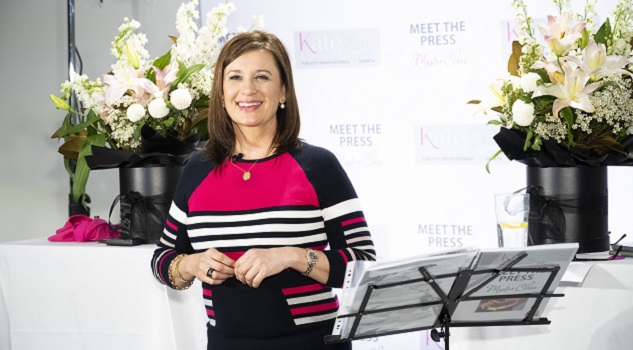Survivor guilt or thriver guilt – the unexpected by-product of 2020.
Psychologists define survivor guilt as feelings of guilt for surviving something when others did not.
This usually describes pretty catastrophic events (car accidents, plane crashes, terrorist attacks) … who would have thought it applies to a global pandemic!
There is no doubt that some business owners feel they’ve experienced both a plane and car crash as much of the landscape they thought was stable has been decimated. Businesses failing, staff layoffs, financial challenges, marital stress … 2020 has served up the worst year many have ever experienced.
And yet, there has been another side to 2020. A side only talked about in hushed tones, whispered in dark corners and shared discreetly with the safe ears of one’s inner-circle sanctum.
This other, unspoken side of 2020 has seen many businesses not only survive, but thrive.
So why have these success stories been so camera shy?
Why we’ve been conflicted
Psychologist from The Couch Therapy Group, Donna Cameron, explains that many people feel conflicted about their successes.
“How are you meant to celebrate success in your business when so many others have failed, maybe even friends, family or former colleagues? As a consequence, these success stories have been silenced. There’s a real sense of survivor guilt for those who have thrived in 2020,” the psychologist says.
“Sharing success stories is a way of showing other businesses there’s hope.”
As a mental health professional, Ms Cameron warns against burying successes.
“When businesses ignore their achievements and don’t celebrate wins, it can affect their momentum and stifle growth. As humans, without celebrating successes, we often stop putting in that extra effort and feel like we can’t be bothered,” she says.
Cameron explains that sharing success stories is a way of showing other businesses there’s hope.
Staying nimble
“Nimbility” (a made-up word that means the ability to be nimble) has been at the core of many successes, but just this suggestion feels like a veiled criticism of those who haven’t had a great year. And it’s absolutely not, and this is where the “survivor guilt” kicks in.
This almost apologetic admission of success in 2020 is hard to hear for those who have struggled, and it has caused an unusual suppression amongst those who’ve done well.
From my own personal experience, 2020 delivered our best year yet. While initially fearful that my Meet The Press MasterClasses (held in person) would have to be cancelled, nimbility allowed a rejig. We delivered an intimate and personal experience – for businesses and journalists – via live stream. Known for intimate connection, attendees and journalists were left stunned at how we were able to re-invent this highly personal media experience and deliver it via live-stream, all while maintaining the intimacy they’ve come to expect.
Both MasterClasses sold out, and while the June MasterClass presented some unexpected disappointments behind the scenes, we learnt the lessons, quickly reset, changed up the AV team and delivered our October MasterClass which, according to many regular attendees, was the best they’ve attended (thanks Flipswitch Media!).
Cue the survivor guilt!
I was acutely aware that while many businesses stepped up and applied for the MasterClass, even more didn’t, hoping the storm would soon pass.
A different approach
Elyse Daniels, Exodus Wear CEO, also witnessed other businesses go into hibernation, but decided to buck the trend and do the opposite, keeping her whole team employed.
Daniels managed to “cash up” by maximising government grants, negotiating extended payment terms and lowering her regular payments with suppliers, to keep more cash on hand.
Her goal was to ride out the storm for 18 months, even with little, or no, sales. But that didn’t mean she stopped spending. Quite the opposite.
“We sped up when others slowed down. We invested more in our website and online ads. We even had to hire more people when these strategies started working. I believed that those who invested in their business this year would come out on top,” she explains.
Mia De Rauch from Flipswitch Media agrees with Daniels about the benefit of taking action in the face of uncertainty.
“We’ve been lucky to see a lot of success for businesses that took action quickly. From recruiters, digital marketers, property developers and online stores – the ones who’ve continued to grow or keep afloat have been willing to invest in their business and increase their marketing budget.
“The ‘online culture’ pushed businesses to think about their business in a new way. Video was perfect for them, so we’ve connected with more contractors and hired in-house throughout the year to deal with demand,” De Rauch said.
But while some businesses hired, others sadly fired. Director of 3D HR Legal, Jo Alilovic, described 2020 as bittersweet.
“Knowing people were in emotional and financial pain for not only themselves but also their shrinking teams was heart wrenching. When they needed my professional advice to help them, it was difficult because I didn’t want to be seen as profiting from their pain.
“Lawyers are accustomed to seeing people in pain – that’s not new – but with COVID-19, I didn’t really feel I could charge as much – or sometimes at all. So yes, my ‘guilt’ around being in demand was very real,” she says.
Alilovic believes that survivor guilt will ease as the economy starts to lift and more opportunities emerge.
Nelson Property Transfer Services’ Jen Nelson saw the need to work remotely as an opportunity to introduce new processes that saw a significant uptick in productivity for her ever-expanding team.
“Although COVID-19 has been horrible, it has been the best thing for my business. We are so much more productive; we’re working better as a team and the flexible working conditions are amazing for all of us,” Nelson enthuses.
However, she is mindful that her success is unique and not everyone wants to hear about it.
“When speaking with other business owners, I usually ask them first how they are going, and gauge how they answer and then, depending on that, will either share my success or stay quiet. If they’ve been hurting, I don’t want to rub my success in their face,” Nelson says.
Shake off the fear and shift your focus
From a professional perspective, Cameron explains why some people bunkered down in 2020, while others embraced change and sought out potential opportunities.
“The fear of the unknown is what usually paralyses people. During 2020, some businesses thrived, some individuals got their finances under control and some people took time to stop, think and get creative with business ideas which have resulted in successes,” she says.
If you’re feeling guilty about 2020 success, Cameron suggests these great tips to help shift your focus and reduce the unproductive “guilts”:
Remember that COVID-19 was not your fault. You did not cause the negative implication of this virus.
You’ve earned your success. Your hard work has spanned a much longer timeframe than just 2020.
Pay it forward. Your success can help boost the success of others. Help other businesses by spending money locally – the perfect way to celebrate your wins is by helping others achieve theirs.
Everyone I spoke with had their own version of survivor guilt which they combatted in their own way – many spent more to support the community. So perhaps the overarching emotion that may be more productive is “gratitude” – for your success, for your amazing team, that you can provide stable employment in turbulent times, and gratitude that you can afford to support other businesses in your local area.
Yes, perhaps gratitude is a much wiser emotion than guilt.
Kate Engler, founder, Meet The Press MasterClass
This story first appeared in issue 31 of the Inside Small Business quarterly magazine















